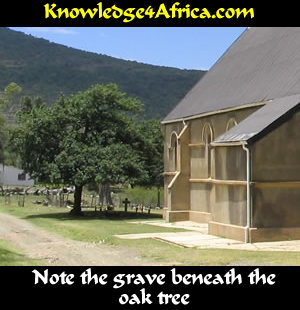|
READ THIS
Study this worksheet AFTER the book has been completed!
The Prologue begins the story at its end. Crispin's body has been brought back to the mission. The family
is in mourning.
Walter Brownley is sent to fetch Benedict to join the family at prayer. Later, he goes to his own room for
the night but is reminded of Frances.
 PURPOSE OF THE PROLOGUE
PURPOSE OF THE PROLOGUE
A good prologue always needs to be re-read after the novel has been finished because it contains hints
to themes which only reveal themselves later in the story.
When read on its own, however, the prologue is confusing. Too many characters are introduced all at
once. Indeed, by itself, the prologue is often hardly understandable at all.
In the prologue to Shades, all of the leading characters are mentioned. We have Walter
Brownley, clearly the main character. Then there is Charles Farborough and his wife, Emily.
Their son Crispin is dead but it is not certain why or how -- and we suspect that that is what the novel
is all about.
Clearly there is enmity between Benedict and Victor, with Benedict believing that Victor is somehow
responsible for Crispin's death.
There is reference to a "catastrophic game" which has claimed all: Crispin dead; Tom, Reuben
and Sonwabo gone; Benedict and Walter about to leave.
It is also clear that there is some divide between Benedict and the Farboroughs. Emily refers to him as
"family" and yet he does not enter into the house for the prayers.
The author also introduces the reader to the idea of predestination. Fate somehow dogs all of them --
but especially Walter who is determined to break free from its hold.
He intends to leave the mission forever and "no inducements", "no remembrances" will hold
him back.
There is also pain: the memory of Frances Farborough which causes a "primal cry" to rise "like
a flame in his throat".
And then there is Helmina Smythe, "dependent", merely a "paid employee of the mission",
almost a faceless person.
All of these themes make sense only through a thorough reading of the novel itself. It is worthwhile
therefore to return to the prologue once the novel has been finished.
Have you looked at the questions
in the right column?
|
TEST YOURSELF!
Read the left column and then answer
the following questions:
"Benedict was silent. He glanced at the papers on the desk and he said, his voice flat, "With the family
. . . I am always told that I am a member of the family . . . One is given a hat and a pair of breeches, a
name and a present at Christmas and a sponsor to pay the fees and one is suddenly a member of the
family."
- There is a bitterness to Benedict's words. Explain why. (10)

[Need help?]
This passage sums up the crux of Benedict's dilemma.
He has done everything that can be demanded of a Black person in order to be recognised as an equal
of the English.
He is educated, dresses like an Englishman, is a Christian -- perhaps even ready to become a priest
-- and has given up every vestige of traditional Xhosa custom.
Emily Farborough even calls him "family". But he is not part of the family. Indeed, he is still no
more than a servant.
|
"You must look for the reasons [for Crispin's death] with Victor Drake," said Benedict. "You will see
it in his face."
- Explain what Benedict means by this. (4)

[Need help?]
Benedict had, of course, seen right through Victor. He knew he was behind the recruiting of the Pumani
brothers to the mines.
He knew therefore that Victor was ultimately responsible for Crispin's death -- and he knew also that
Victor knew it.
|
"At St Matthias Mission there is an odd sense of predestination . . . I shall leave before I am its
victim."
- Does Walter leave before he is its victim? (30)

[Need help?]
A very good point here for a debate.
- Is Walter a victim of fate?
- Is he a victim of his own shyness?
- Does he actually leave before he is a victim? In fact, does he leave at all?
- Is the ending of the novel a victory for fate? Or is it a victory for simple commonsense?
|
"And now he was leaving -- fighting a rising desolation: not a victim eager for escape, but an exile
sent from home."
- In what way is Walter "an exile sent from home"? (4)

[Need help?]
Remember that by now Walter sees "home" as St Matthias and Mbokothwe.
He did not want to escape -- but sees exile as essential if he is not to interfere with the marriage of
Frances to Victor.
|
"The catastrophic game had ended as he knew it must."
- What is meant by the "catastrophic game"? (6)

[Need help?]
The "catastrophic game" is multi-dimensional. You have to examine it from the point of all of
Victor's machinations:
- his involvement in recruiting for the mines which leads to the deaths of the Pumani brothers and
ultimately of Crispin;
- his luring Frances into an unwanted marriage through forcing sexual intercourse onto her,
etc.
Make sure that you understand each of these, and more!
|

[Need help?]
It had ended with Frances waiting in Grahamstown for an undesirable marriage to take place. It had
ended with the death of the Pumani brothers, and of Crispin.
Benedict himself was going away, unable to take the sham of being a Black man in a White community.
And Walter was leaving for England, going into exile because he could not face meeting Frances again
but this time as the wife of Victor.
|
"He'd felt a primal cry, rising like a flame in his throat."
- Explain what is meant by this "primal cry". (4)

[Need help?]
A primal cry is that cry which rises from the very depths of one's being, a cry that rises from the innermost
recesses of one's soul.
|

[Need help?]
We have to see this as linked to Walter's desperate love for Frances, a love that thus far remains
unfulfilled, a desperation that reaches to the centre of his existence.
|
|




